
Document Center
The Document Center provides easy access to public documents. Click on one of the categories below to see related documents or use the search function.
100 percent of multi-family properties in Castro Valley subscribe to recycling service and 99 percent subscribe to organics service. CVSan’s multi-family outreach efforts have resulted in 159 multi-family food scrap recycling programs. 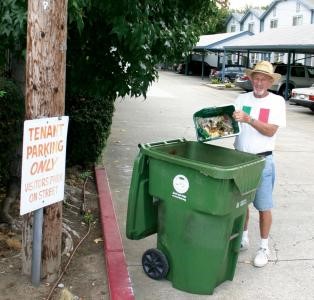
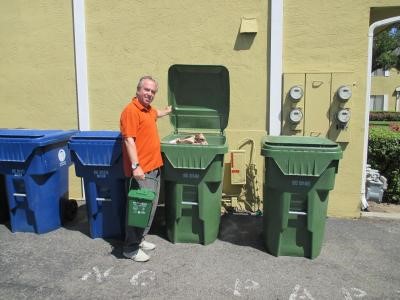
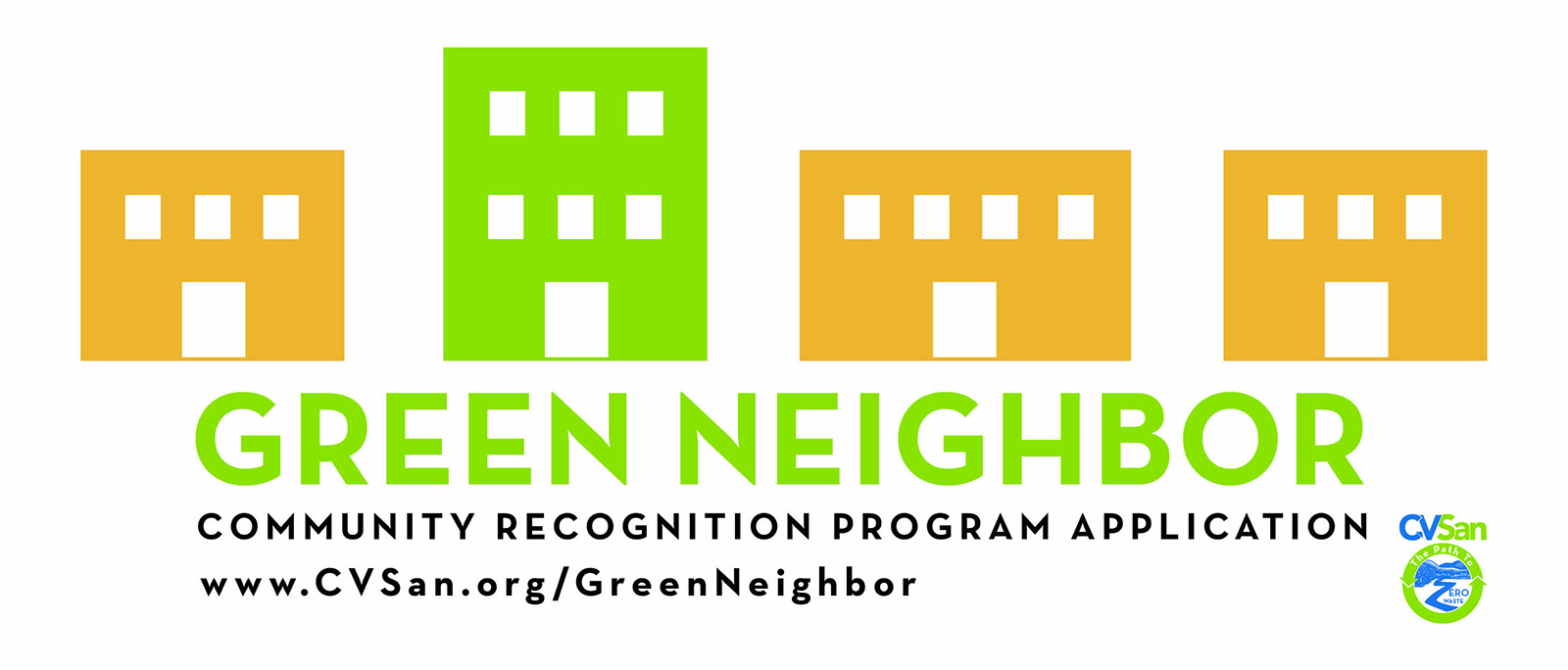
Multi-family communities are able to apply for the recognition (and awards) they deserve for going above and beyond to reduce waste! Learn more about CVSan’s Green Neighbor Community Recognition Program.
New Law in Effect: SB 1383 and the Organics Reduction & Recycling Ordinance385xs256 for web_2022-01-19.jpg)
When compostable materials like food scraps, food-soiled paper, and plant debris break down in landfills, they produce methane, a potent greenhouse gas and contributor to climate change. To help keep compostable materials out of landfills, Senate Bill 1383 went into effect on January 1, 2022. One of the main objectives of SB 1383 that applies to multi-family communities is a goal to reduce organic waste going to landfill by 75 percent by 2025.
The Alameda County Waste Management Authority (ACWMA) passed Ordinance 2021-02, the Organics Reduction & Recycling Ordinance (ORRO), to help Alameda County residents and businesses comply with the new regulations set by the state with SB 1383. Castro Valley Sanitary District (CVSan) adopted Ordinance No. 189, opting in to the ORRO. The ORRO repeals ACWMA Ordinance 2012-1 Mandatory Recycling and Organics.
The ORRO requires that all multi-family communities be subscribed to organics, recycling, and garbage collection service(s). Multi-family communities must also comply with these requirements:
Violations of the ORRO carry a penalty up to $500 per violation. To help reduce contamination in materials picked up by our contracted hauler, Alameda County Industries (ACI), CVSan recently approved a contamination fee schedule for excessive materials found in the wrong container. CVSan and ACI are here to help all multi-family properties in Castro Valley with compliance to the ORRO.
Property owners in Castro Valley are encouraged to call CVSan for assistance with getting their property in compliance with SB 1383 and the ORRO. You can also ask for a review of your service agreement with ACI to be sure your property receives the maximum capacity of garbage, recycling and organics pickup available. CVSan also offers free resources to multi-family properties through grant funds; supplies such as PDF and print guides, flyers, tenant kits, as well as donations of indoor recycling and organics containers are available. Please contact CVSan at contact@cvsan.org or (510) 537-0757 to schedule a free assessment for your property to make sure you are in compliance with SB 1383 and the ORRO.
New Signs To Reduce Contamination and Comply with SB 1383
CVSan has developed special signs to place in bin and cart areas to help multi-family communities comply with SB 1383 requirements and to reduce contamination in recycling and organics carts and bins. Click on the signs below to print a PDF copy or fill out a request form for a laminated sign.
Bags in Recycling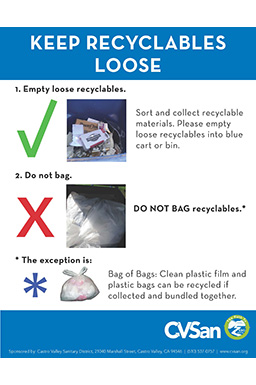
No Plastic in Organics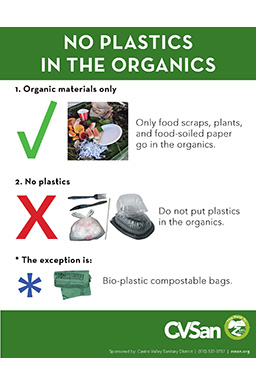
No Electronics in Bins and Carts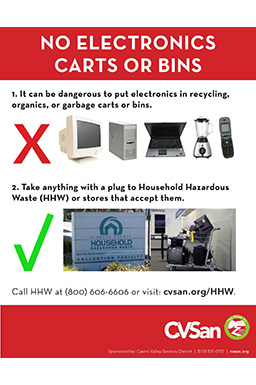
Resources for Tenants
CVSan’s multi-family program includes tools to help residents sort recycling and compost items at home free of charge. Fill out CVSan’s Donation and Supply Request Form at the bottom of this page to make a request.
Look what is available!
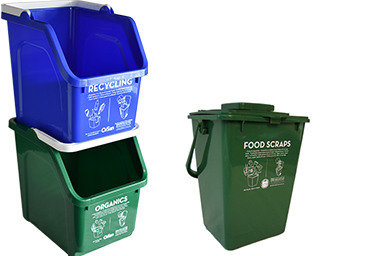
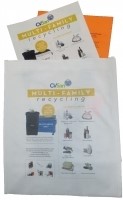
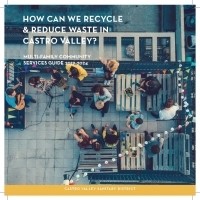
For more information on how you can help recycle and reduce waste in Castro Valley please review the Multi-Family Community Services Guide located at the bottom of this page.
Bulky & Reuse Pick-Up:
Multi-family properties in Castro Valley are eligible for one Bulky & Reuse Pick-Up per calendar year. Each property is eligible for 2 cubic yards of bulky goods service per unit. Contact ACI to schedule a Bulky & Reuse Pick-Up at (510) 483-1400. Each year multi-family properties will be mailed a coupon for 2 cubic yards of bulky drop-off at Davis Street Transfer Station in San Leandro. For more information, visit our Bulky and Reuse Pickup page.
Textile Collection:
Clothing and textiles can be set out for collection during the first full week of June and October for collection at the curb during Textile Collection Week. Textiles can also be set out in the Bulky and Reuse Pick-up.
Household Hazardous Waste Information and Drop-off Locations:
Listed on our HHW web page.
Multi-Family Monthly Rates:
CVSan’s multi-family recycling and organics program rewards recycling and composting. Garbage cart service includes recycling and organics, and 1-3 cubic yard bins can be custom bundled. Find out more information about current rates here.

The Document Center provides easy access to public documents. Click on one of the categories below to see related documents or use the search function.